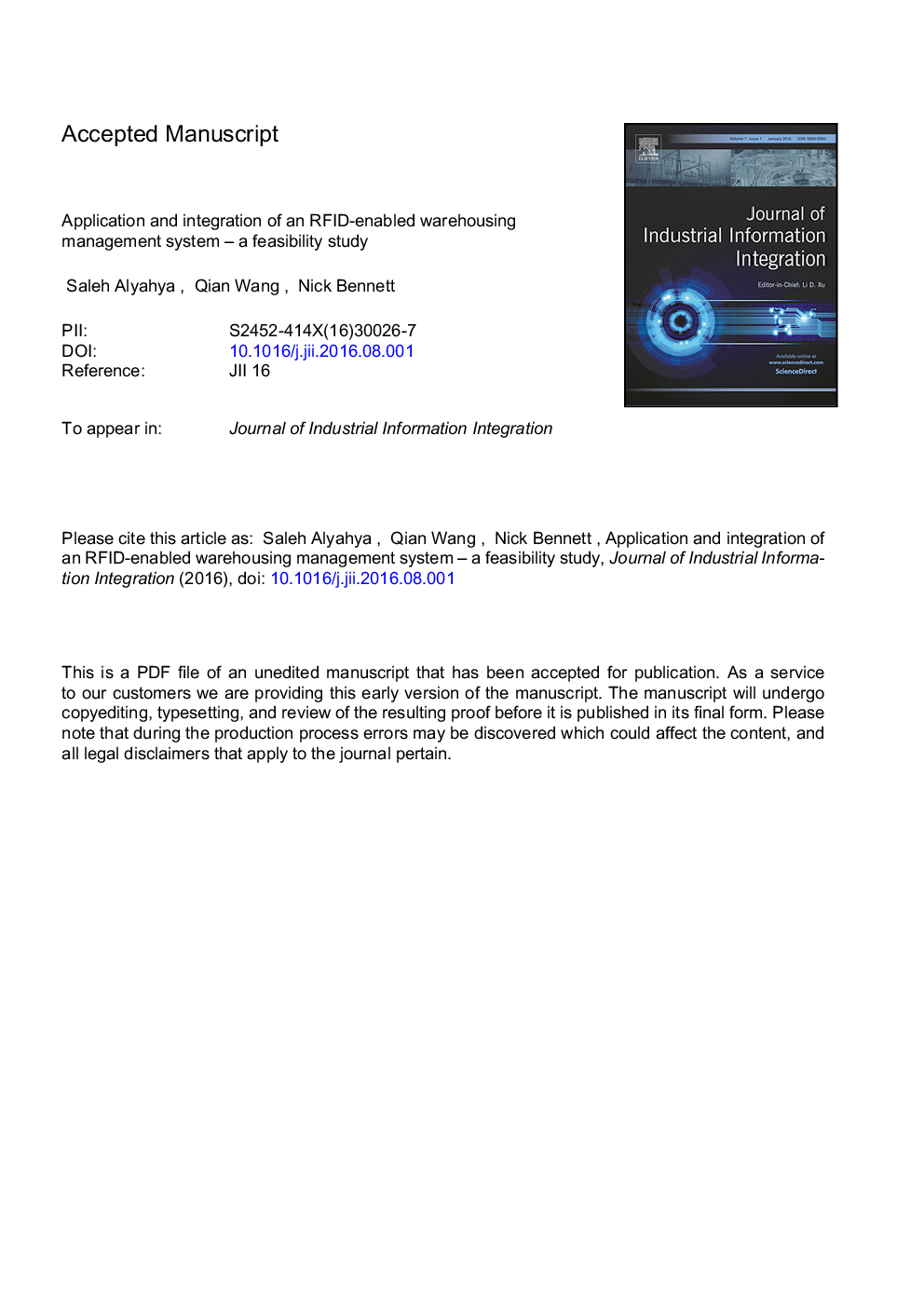| Article ID | Journal | Published Year | Pages | File Type |
|---|---|---|---|---|
| 4973043 | Journal of Industrial Information Integration | 2016 | 19 Pages |
Abstract
In supply chain and logistics sectors, accuracy of inventory data can be crucial for warehouse operations, SKU planning, and inventory management and control of incoming and outgoing goods. For the past decade, it has been seen a sharp rise for online shopping activities across the UK. Many customers now prefer to purchase goods online and demand a fast delivery of ordered products to be dispatched directly at their door steps. Thus, there is a desire for these sectors to seek even more efficient and effective methods for storing, picking and dispatching goods in increasingly centralised distribution centres in which automation and integration of warehousing systems is inevitable. As part of a study for future generation warehouses, this paper presents an investigation into a methodology in which an RFID-based inventory management system has capability of interacting with a proposed RFID-enabled automated storage and retrieval mechanism without any human intervention. To maximise efficiency in material-handling operations and minimise operational costs, a selection algorithm was developed within the RFID-inventory management system to seek an optimal solution in which it allows a manipulation of RFID-tracked items under pre-defined rules by assigning a priority (in an order if applicable) to one of selected items to travel to a specified collection point. A pilot test was carried out for examining the feasibility and applicability of the RFID-based management system based on the developed selection algorithm. In theory, such a system can be expanded by incorporating any pre-defined selection parameters.
Related Topics
Physical Sciences and Engineering
Computer Science
Information Systems
Authors
Saleh Alyahya, Wang Qian, Nick Bennett,
